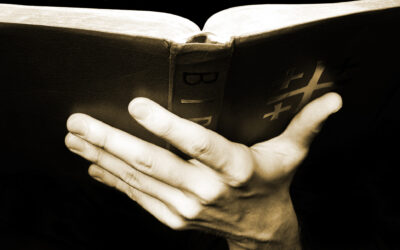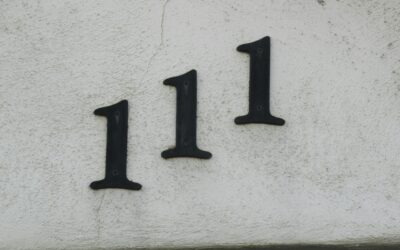When you hear the word “holy,” what comes to mind? Perhaps you think of perfection or those with “holier than thou” attitudes because they behave as though they are morally superior to others. The original Hebrew meaning of “holy” has little to do with a self-righteous attitude and more to do with God’s holiness. In fact, the word holy is used more than 600 times in the Bible, which points to its significance. So, what is the Hebrew word for holy?
The Hebrew word for “holy” is Kodesh. It means to be set apart for a specific purpose. Through the Israelites and the Old Testament Tabernacle, we learn more about how to enter the presence of the Holy One. The Hebrew word holy also points to the distinct nature of God.
What is Considered Holy in the Old Testament?
The Hebrew word for holy, “kodesh,” refers to something or someone that has been sanctified or set apart. Holiness is a state of God, which means He is pure, clean, or perfect in all ways. To be “holy” is to be “set apart for honorable use.”
To get into God’s presence and stand in His holy place we must have clean hands, a pure heart, and worship only God (Psalm 24:4). The word holy is mentioned during the creation process when He made the seventh day and made it “holy.” This shows the seventh day was set apart as special by God (Genesis 2:3). The categories of what is considered clean are similar to what is holy in that those who could approach God’s presence were expected to be honorable. The Bible says: “What is “holy” is set apart from the common” (Leviticus 10:10).
The Mosaic Law states something is “unclean” if it is unfit to worship or go in His presence. Clean and unclean was also what was used in the Old Testament to separate the Jews and Gentiles. Thus, cleanliness was a return to a state of external purity, not an internal eradication of sin. It’s about not violating God’s holiness and instead being in a state of spiritual purity to be able to approach God.
Furthermore, being unclean was temporary, and once a person had been made clean, they could come and offer their sacrifices in the Tabernacle (which was holy) without violating God’s presence.
Being Holy Before the Lord: The Story Of Nadab And Abihu
The Death of Nadab and Abihu exemplifies what God considers holy in the Old Testament. Nadab and Abihu were among the people selected by God to come before Him and worship at a distance (Exodus 24:1). Nadab and Abihu received this honor because God selected Aaron and his sons to serve as priests on behalf of the Israelites (Exodus 28:1).
The call to priesthood was not easy. The priests had to go through a seven-day physical cleansing or consecration ceremony to ensure when they went before God; they were holy and fit for service (Leviticus 8).
When the first service in the Tabernacle began, Aaron, the High Priest, offered the first sacrifices, which the Lord accepted by consuming with fire (Leviticus 9:22-24). However, Nadab and Abihu offered unauthorized fire before the Lord that did not adhere to His specifications or commandments. As a result, fire came out from the presence of the Lord and consumed them both (Leviticus 10:1-2).
When priests worked in the Tabernacle, they were supposed to be holy. God also made it clear that the priests were not to offer on the altar any other incense or any burnt offering (Exodus 30:9). As for the death of Nadab and Abihu God told Moses, “Among those who approach me, I will be proved holy” (Leviticus 10:3).
A similar event occurred when David and the Israelites were moving the Ark of the Covenant to Jerusalem (1 Chronicles 13:1–10). When Uzzah touched the ark to ensure it didn’t fall, he was struck dead (2 Samuel 6:1-7; 1 Chronicles 13:9-12). Touching the ark violated God’s law because God’s holiness was in the ark, and drawing near Him without appropriate preparation was also prohibited.
Uncleanliness Separates Israelites From What is Holy
Uncleanliness is a ceremonial and religious term that speaks about a condition that separates the Israelites from the Lord. Isaiah reiterates a similar message: “The unclean shall not pass on the Highway of Holiness (Isaiah 35:8).
Uncleanness represents sin, which separates man from God. Because man is sinful, he has to be physically clean before he can come to the presence of the Lord. When God appeared to Moses as a burning bush, Moses had to remove his shoes because he was standing on holy ground (Exodus 3:4–5).
God also told the Israelites that He was Holy, and they should consecrate themselves and be holy like Him.“For I am the Lord your God. Consecrate yourselves therefore, and be holy, for I am holy” (Leviticus 11:44).
God’s holiness separates Him from all other beings and everything else. And because God is holy, he sets the perfect example for the Israelites to follow, meaning no unclean thing can dwell in His presence. Through the Mosaic laws, God was able to demonstrate to the Israelites what it meant to be holy so that they could also differentiate what was right and wrong before God.
What is the Holy One of Israel?
Several scriptures In the Old Testament mention “the holy one of Israel” (Isaiah 43:14; 45:11; 48:17; 49:7; 30:2; 30:15). It also appears three times in the Psalms (71:22; 78:41; 89:18), twice in Jeremiah (50:29; 51:5), and once in Ezekiel (39:7).
In this aspect, “holy” means “separate” from others, meaning Israel was to be “set apart” from the surrounding nations.
The Mosaic laws given by God through Moses explain how the Israelites were to be holy. For instance, observing the Sabbath and refraining from idol worship would help set Israel apart. That means they would be a holy people to the Lord their God. Israel is called to be holy because the Lord himself is holy and they are His people.
When the Scriptures call Israel a holy nation, it doesn’t suggest that Israel is sinless. Instead, it points to the fact that Israel has been chosen or set apart from the nations.
Deuteronomy describes Israel as “people holy (kodesh) to the Lord” (7:6). When we combine the Hebrew word for holy (kodesh) with the name Israel, we get the Holy One of Israel” referring to the one true God of the people of Israel. So, “the Holy One of Israel” is another title for God in the Old Testament.
Why Is God Called “Holy, Holy, Holy”
The Bible says in Isaiah, “Holy, holy, holy is the LORD Almighty; the whole earth is full of his glory” (Isaiah 6:3). A similar message is reiterated in Revelation: “Holy, holy, holy is the Lord God Almighty,’ who was, and is, and is to come” (4:8).
Isaiah was a prophet of God and a righteous man, yet when he saw the vision of God’s holiness, he became aware of his sinfulness. Even the angels in God’s presence saying “Holy, holy, holy is the LORD Almighty” covered their faces and feet to show reverence in the presence of God.
These two verses mention the word holy three times, which point to its significance. It can also refer to the Trinity, each equal in holiness. The third person of the Trinity (the Holy Spirit) even through its name, denotes holiness. The fact that these two verses with similar wording are mentioned in both Old and New statements shows that the holiness of God doesn’t change; it’s eternal.
Conclusion
In the Old Testament, only those considered clean could come before God’s holiness. When we unravel the Hebrew word kodesh we realize that Israel was separated into Jews and Gentiles, which further clarifies what the Bible means by “holy.” The word holy (kodesh) is stated three times in Isaiah and Revelation to emphasize God’s holiness. By mentioning the word holy three times the Scripture makes it stand out as important and shows its significance in both the New and Old Testaments.




